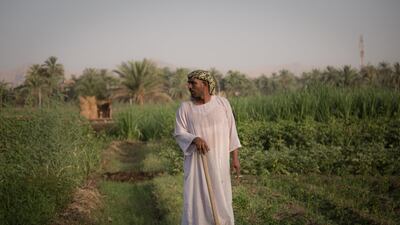The starting point for the Middle East and Northern Africa to address the existential threat of climate change is to reduce excessive fossil fuel use by removing subsidies and investing to increase energy efficiency.
The GCC nations - starting with the UAE - have initiated a phased removal of fuel, electricity and water subsidies that have distorted consumption and production choices and encouraged energy waste. The removal of subsidies will discourage energy-intensive activities, provide cost incentives to improve energy efficiency and shift the energy mix away from fossil fuels towards renewables. Eliminating subsidies also provides greater financial resources to fund renewable energy investments and climate-resilient infrastructure.
Given heat levels in the GCC, modernising air conditioning systems and retrofitting existing buildings can radically improve energy efficiency and reduce carbon emissions. Green buildings standards are a policy initiative gaining traction: Dubai Municipality has issued the Green Building Regulations and Specifications for all new buildings in the Emirate since March 2014.
But Dubai is the only city in Mena to join the Building Efficiency Accelerator programme, aiming to double the rate of energy efficiency by 2030. Overall, effective implementation of energy use targets and standards could lower energy use by some 30 per cent. Increasing energy efficiency is low hanging fruit and should be accelerated given the high returns on investment.
The Middle East and GCC are part of the Global Sun Belt: more energy falls on the world’s deserts in six hours than the whole world consumes in a year.
Harnessing solar power is an efficient policy choice. The GCC nations, especially the UAE, are taking a lead in investing in renewable energy in Mena. There is now a GCC renewable energy project pipeline comprising over 7 GW of new power generation capacity to be realised within the next few years. To put it in perspective, one gigawatt is roughly equal to 3.125 million photovoltaic solar panels, 412 utility-scale wind turbines or 110 million LED bulbs. The surge in projects has been supported by the rising cost competitiveness of renewables: it is now cheaper to build new wind and solar PV plants than it is to run existing fossil-fuel ones. The falling costs of energy storage is addressing the intermittency problem of renewables; by 2021, the capital costs of lithium ion battery-based storage are expected to fall by 36 per cent compared to the end of 2017. While the wind power market is slowly catching up in Jordan and Morocco, the GCC has under-invested: more than 56 per cent of the GCC’s surface area has significant potential for wind deployment.
The International Renewable Energy Agency’s (IRENA) 2019 report estimates that by 2030 the GCC is on track to leverage renewables to save some 354 million barrels of oil equivalent (a 23 per cent reduction). Its efforts will also create some 220,500 new jobs, reduce the power sector’s carbon dioxide emissions by 22 per cent and cut water withdrawal in the power sector by 17 per cent.
Renewable energy related targets range from the UAE’s ambitious goal of 44 per cent of capacity by 2050 (from 27 per cent clean energy in 2021) to Bahrain’s target of 10 per cent of electricity generation in 2035, and Saudi Arabia’s 30 per cent of generation from renewables and others (mainly nuclear) by 2030.
While these targets sound ambitious, they do not meet the threat of climate change. The acceleration and intensity of climate change requires deeper and holistic strategic planning and action. Climate change poses some daunting challenges and existential risks.
To address the stranded assets risk, the GCC needs to share risk on a global basis by privatising or selling participation in their vast energy reserves and related assets (upstream and downstream). Saudi Arabia’s announced plan to privatise Aramco is a structural reform that could be a model for other oil producers to emulate. In the same vein, the GCC sovereign wealth funds should divest from fossil fuel assets (as Norway’s Government Pension Fund Global is doing) and the banking and financial sector should gradually divest and reduce its exposure to fossil fuel assets.
The GCC countries have developed energy sustainability policies. But these are modest given their natural comparative advantage in harnessing solar & wind power and their substantial financial resources allowing accelerated investment in renewable energy assets. This is the time for the GCC to commit to and implement comprehensive, Net Zero Emissions (NZE) goal climate strategies in or before 2050, along with some 15 other nations.
Decarbonisation and economic diversification are complementary strategies and a win-win opportunity. By diversifying and investing in renewable, sustainable energy and climate risk mitigating industries and activities –through Green Economy strategies - the GCC can create jobs, innovate and develop a new alternative export base.
The existential threat of climate change is real and becoming a clear and present danger requiring national and regional concerted policies and action, with the promise of new technologies, decarbonised growth and new economic development models. The alternative of inaction is decades of decline, dismal growth prospects, growing impoverishment, instability and conflicts. The choice is clear.
Dr Nasser H Saidi is the chair of the Mena Clean Energy Business Council and founder and president of the economic advisory and business consultancy Nasser Saidi & Associates

